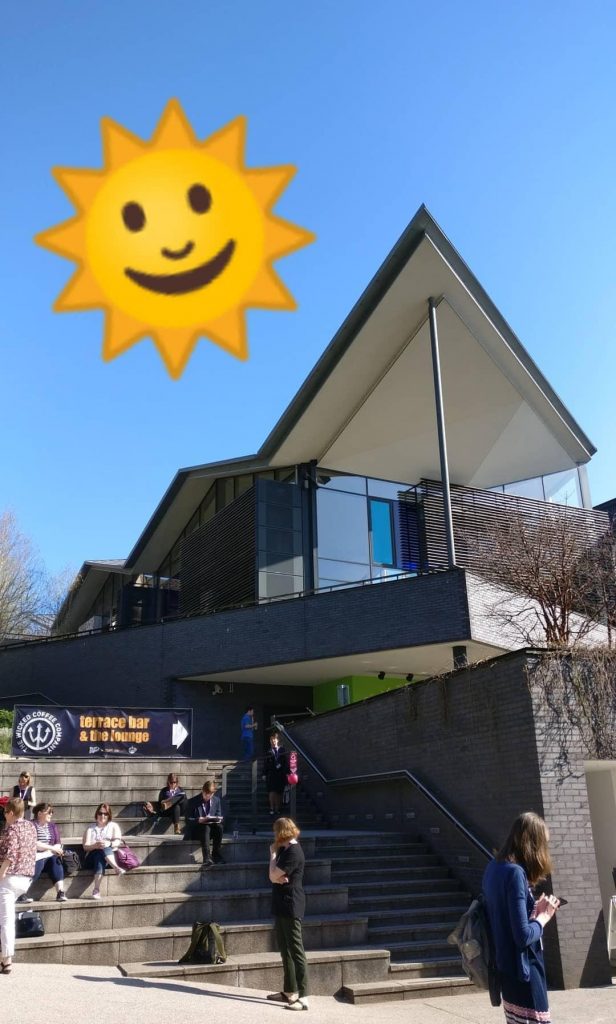The University of Winchester campus was blessed with an early summer when it hosted the annual Change Agents Network conference. Hundreds of HE and FE delegated congregated to hear inspirational examples of university staff and students working in partnership. Even though myself and my team have a good relationship with the Chichester students’ union, I wanted to see what else was being achieved throughout the sector.
Personal highlights for me included the second-day keynote by Solent University’s Professor of Research Informed Teaching, Tansy Jessop; Alienation as vice and virtue: understanding the difference, and making a difference. The talk took a fresh look at the expectations of students coming to University, how are students meant to be challenged during their time, and how this can often be reported as bad experiences?
Confused, angry, doubting the firmament, questioning everything you ever knew?
Welcome to university! If you are not feeling any of these things, then you are not in higher education
TEL Champion scheme
Winchester Learning Technologist, Hannah Watts (now at Solent) shared her experiences setting up and running the TEL Champion scheme. Students were asked to volunteer their time to gain, develop and assess their own digital skills in exchange for then supporting others across the university. The scheme was linked to the student HEAR (Higher Education Achievement Record) meaning that their efforts would be formally recognised, as well as giving them the confidence to train others and the freedom to network.
Digital Capabilities and Employability
One of the final sessions of the two-day conference was of specific interest to me. We’ve been investigating a very similar direction, and Winchester are about a year ahead of where we are now. There’s a lot of talk within the sector about having digital literate graduates, however “digitally literate” is a tough term to define. Myself and the rest of the TEL Team have decided that this should be up to local employers to define, as they knew better the kinds of skills they are looking for.
This was the same approach that Winchester has taken and they have already started to work with employers to define what skills graduates are expected to come with, and what skills can be learned on the job. Once defined, they have been working with departments to embed them into the curriculum.

